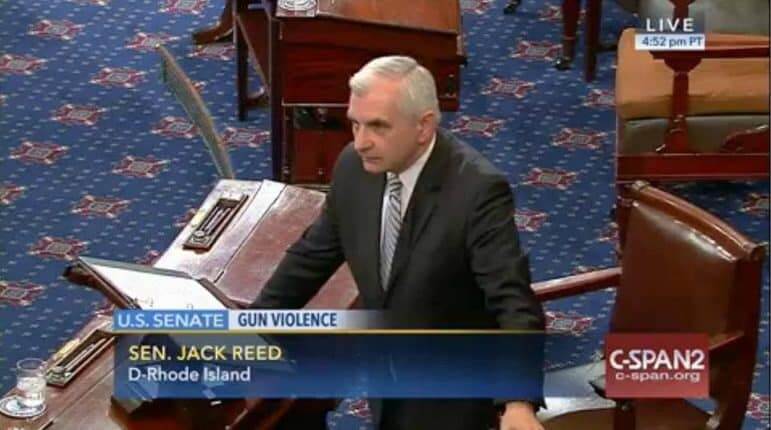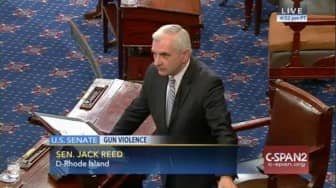

to prevent fraudulent, negligent behavior and hold senior executives accountable, U.S. Senator Jack Reed today introduced the Corporate Management Accountability Act, which asks publicly traded companies to disclose policies on whether senior executives or shareholders bear the costs of paying the company’s fines and penalties.
“Senior executives, many of whom are eager to take credit for a company’s good news, must also take more responsibility for the bad news, especially if it is true that the buck stops with them,” said Senator Reed, a senior member of the Senate Banking Committee. “For example, the Financial Crisis Inquiry Commission concluded ‘the financial crisis reached cataclysmic proportions with the collapse of Lehman Brothers,’ and yet, according to the Congressional Research Service, not a single senior executive officer at Lehman Brothers at the federal level was charged, went to jail, or personally paid a federal fine or penalty for the damage caused at Lehman Brothers that rippled through our economy in 2008. Companies must do a better job of aligning executive incentives so that they are motivated to put their shareholders, and not themselves, first.”
According to Professor Peter J. Henning, who writes for the White Collar Watch column for the New York Times: “A problem in holding individuals accountable for misconduct in an organization is the disconnect between the actual decisions and those charged with overseeing the company, so that executives and corporate boards usually plead ignorance about an issue until it is too late.”
The Corporate Management Accountability Act is one attempt at helping to solve this problem by asking publicly traded companies to disclose whether they expect senior executives or shareholders to pay the cost of corporate fines or penalties.
This is a test

the same could be said for Politians